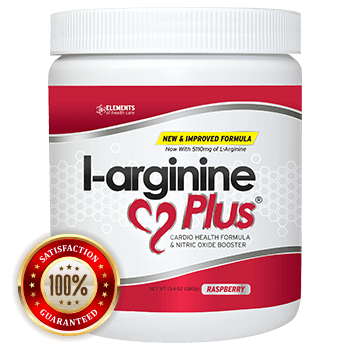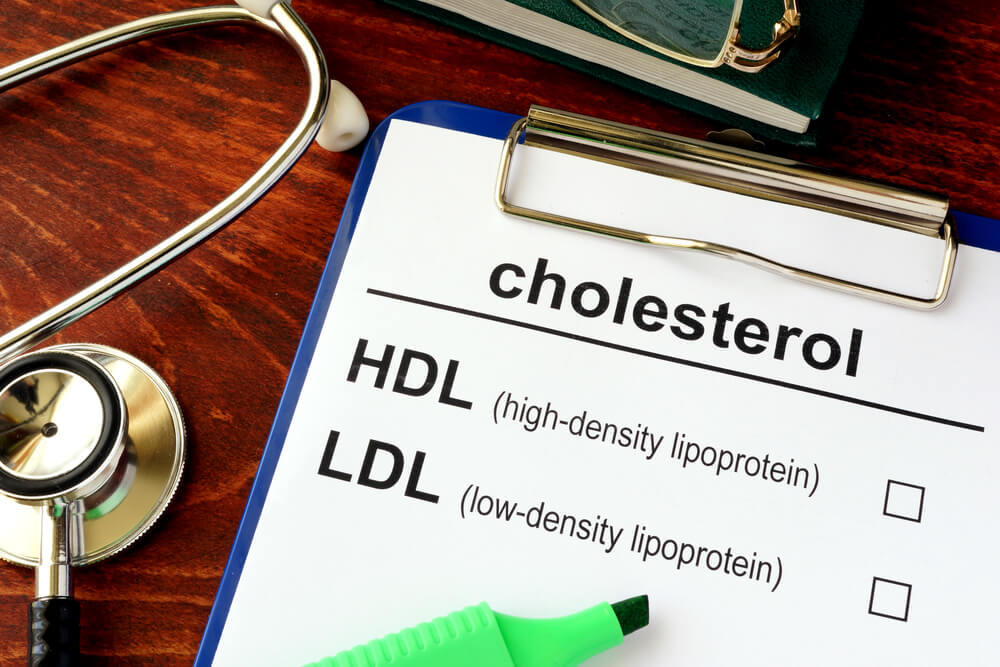Cholesterol is a battle many people seem to lose as they age, but it’s critical to take control and understand how cholesterol changes as we age. Let’s look at healthy cholesterol levels and age.
“The key is to have normal cholesterol levels throughout your lifetime. One misconception is that people can have poorly controlled cholesterol for years and then decide to take action. By then the plaque could already have built up,” says Dr. Eugenia Gianos, cardiologist at NYU Langone Medical Center.
Recommended: Discover How L-arginine Plus® Can Help Support Healthy Cholesterol Levels
Your body needs cholesterol to function properly. Cholesterol is a fatty substance made by your body and also found in certain foods. Extra cholesterol not used by your body will build up in your blood vessel walls causing blockages which raise your risk of having heart disease.
Your total cholesterol level is the overall amount of cholesterol found in your blood. It consists of low-density lipoproteins (LDL) and high-density lipoproteins (HDL).
LDL is also called “bad” cholesterol because it blocks your blood vessels and increases your risk of heart disease. HDL is considered “good” cholesterol because it helps protect you from heart disease. The higher your HDL, the better.
Triglycerides are another type of fat that can build up in the body. Total cholesterol also includes a triglycerides count. High levels of triglycerides and low levels of HDL raise your risk for heart disease.
Cholesterol in adults
The American Heart Association (AHA) recommends that all adults have their cholesterol levels checked every four to six years, starting at age 20, which is when cholesterol levels can start to go up.
As we get older, cholesterol levels tend to rise, especially if we aren’t taking the necessary steps to keep them healthy.
Generally, men are at a higher risk than women for higher bad cholesterol. However, a woman’s risk goes up after she hits menopause.
Additional risk factors increase bad cholesterol levels including high blood pressure (hypertension), family history of premature heart disease, diabetes, and cigarette smoking. If you have any of these risk factors you should get testing as often as your doctor recommends.
According to the National Heart, Lung, and Blood Institute, these are the acceptable, borderline, and high cholesterol and triglyceride measurements for adults. Note: all values are in milligrams per deciliter (mg/dL).
| Total cholesterol | HDL cholesterol | LDL cholesterol | Triglycerides | |
| Good | Less than 200 | 40 or higher | Less than 100 | Less than 149 |
| Borderline | 200–239 | n/a | 130–159 | 150–199 |
| High | 240 or higher | n/a | 160 or higher | 200 or higher |
| Low | n/a | less than 40 | n/a | n/a |
Cholesterol in children
Children who are physically active, eat a healthy diet, aren’t overweight, and don’t have a family history of high cholesterol are at a lower risk for having high cholesterol.
Current guidelines recommend that all children have their cholesterol checked between ages 9 and 11 and then again between ages 17 and 21. Kids with any higher risk factors noted above should be checked between ages 2 and 8 and again between ages 12 and 16.
These are the recommended cholesterol levels for children according to the National Institutes of Health (NIH). All values are in milligrams per deciliter (mg/dL).
| Total cholesterol | HDL cholesterol | LDL cholesterol | Triglycerides | |
| Good | 170 or less | 45 or higher | 110 or less | less than 75 in children 0–9; less than 90 in children 10–19 |
| Borderline | 170–199 | 40–45 | 110–129 | 75–99 in children 0–9; 90–129 in children 10–19 |
| High | 200 or higher | n/a | greater than 130 | 100 or more in children 0–9; 130 or more in children 10–19 |
| Low | n/a | less than 40 | n/a | n/a |
It’s important to know if you have any of the risks for high cholesterol. Get your cholesterol tested and talk to your doctor about your levels and ask what he or she thinks your numbers should be. If you do have high cholesterol, your doctor will be able to advise you with some diet and lifestyle changes you can make to lower it.
How to Get Healthy Cholesterol Support

High levels of bad cholesterol pose a serious threat to our overall health. And without taking action, it becomes increasingly difficult to reduce your cholesterol levels.
L-arginine Plus® offers support for healthy cholesterol as it increases nitric oxide levels within the body.
Nitric oxide is a key molecule the body uses to open the blood vessels. As nitric oxide signals the opening of the blood vessels, it helps the blood to flow throughout the body without as much pressure. This process enables the body to eliminate more of the cholesterol that has the chance to build up in the blood vessels.
Get more information about how L-arginine Plus® can help support your cholesterol levels.

